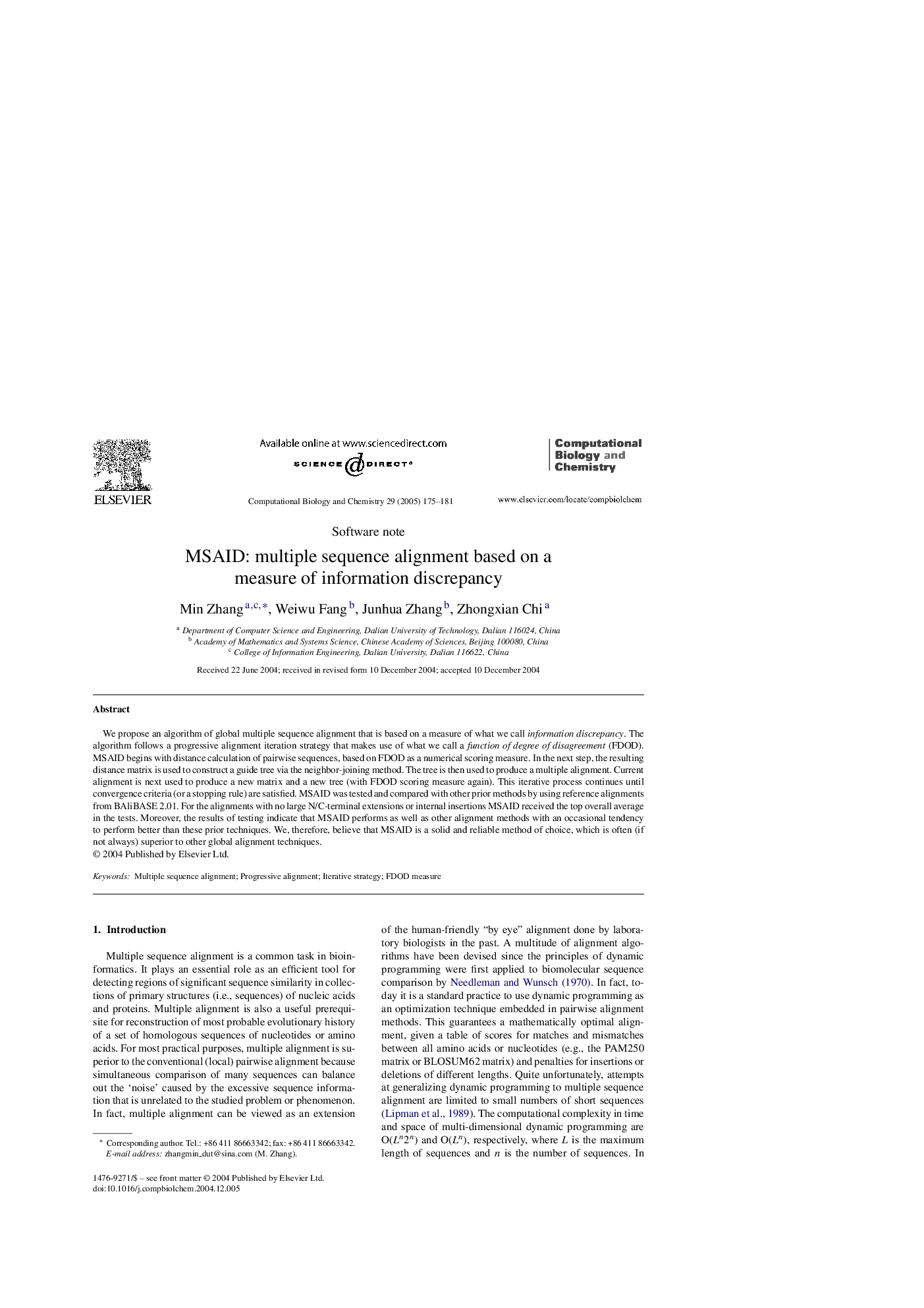| Article ID | Journal | Published Year | Pages | File Type |
|---|---|---|---|---|
| 10231983 | Computational Biology and Chemistry | 2005 | 7 Pages |
Abstract
We propose an algorithm of global multiple sequence alignment that is based on a measure of what we call information discrepancy. The algorithm follows a progressive alignment iteration strategy that makes use of what we call a function of degree of disagreement (FDOD). MSAID begins with distance calculation of pairwise sequences, based on FDOD as a numerical scoring measure. In the next step, the resulting distance matrix is used to construct a guide tree via the neighbor-joining method. The tree is then used to produce a multiple alignment. Current alignment is next used to produce a new matrix and a new tree (with FDOD scoring measure again). This iterative process continues until convergence criteria (or a stopping rule) are satisfied. MSAID was tested and compared with other prior methods by using reference alignments from BAliBASE 2.01. For the alignments with no large N/C-terminal extensions or internal insertions MSAID received the top overall average in the tests. Moreover, the results of testing indicate that MSAID performs as well as other alignment methods with an occasional tendency to perform better than these prior techniques. We, therefore, believe that MSAID is a solid and reliable method of choice, which is often (if not always) superior to other global alignment techniques.
Related Topics
Physical Sciences and Engineering
Chemical Engineering
Bioengineering
Authors
Min Zhang, Weiwu Fang, Junhua Zhang, Zhongxian Chi,
